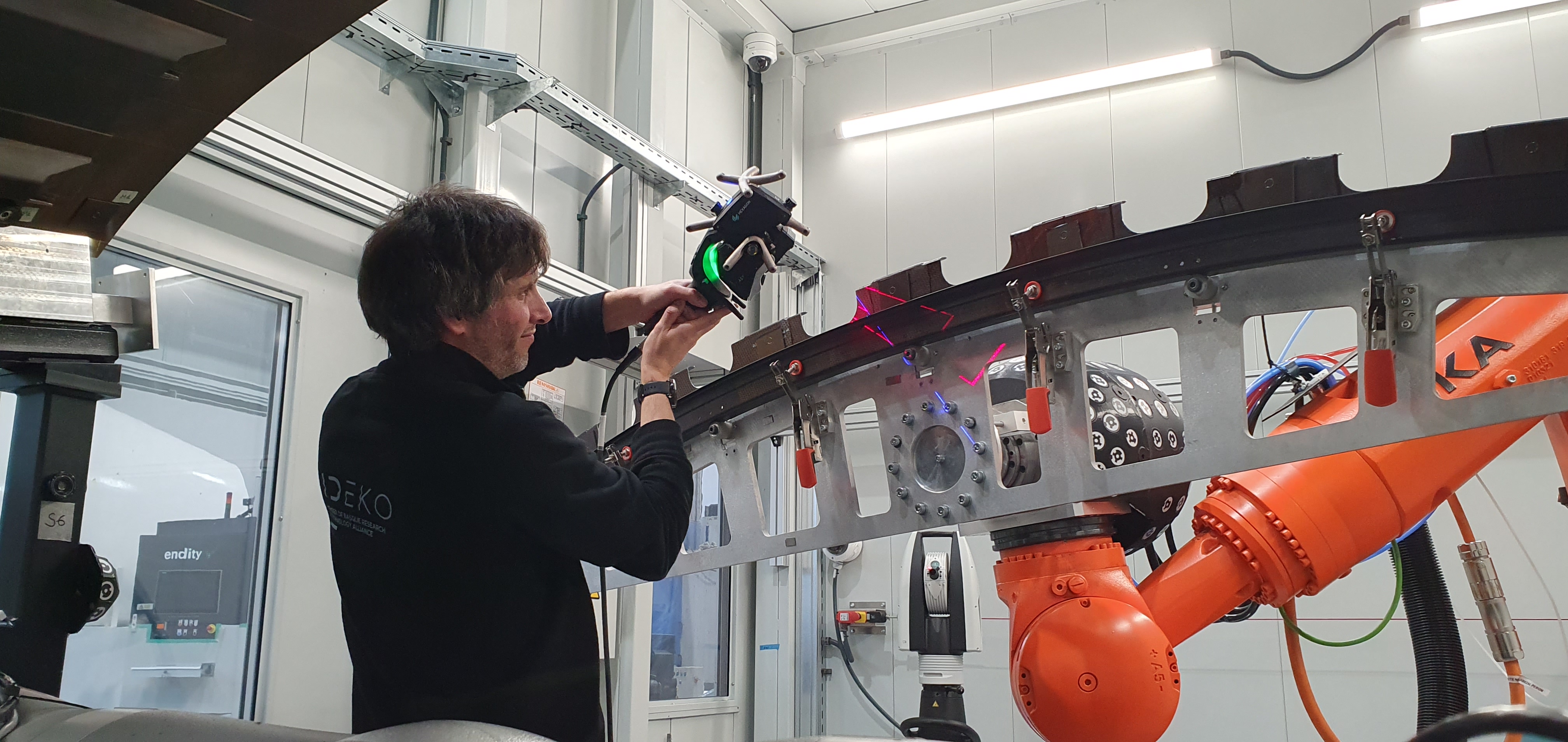Last news about IDEKO.

IDEKO participates in the BioStruct project, focused on developing and validating new manufacturing processes for composites reinforced with natural fibres and biological resins.
The technology centre will contribute its know-how in advanced 3D measurement and vision technologies to improve the precision of production using 'bio' materials for structures such as a ship's hull and a wind blade.
The results of the initiative, funded by the EU's Horizon 2020 programme, will reduce reliance on synthetic components, which are less sustainable and mostly produced outside Europe.
The utilization of biological materials as reinforcement in the development of industrial composites emerges as a potential, more economical and sustainable alternative to replace synthetic components like carbon fiber or glass fiber. However, the use of biocomposites also presents technical challenges in the case of structural applications due to their less regular and solid properties.
In this scenario, the research center IDEKO has been participating since this year in the European BioStruct project to solve the technical problems associated with the use of bio-based composites in industrial structures for sectors such as the wind energy or maritime.
The main objective of the initiative, funded by the EU's Horizon 2020 programme, is to develop and validate new manufacturing processes to boost the use of biocomposites.
In the case of IDEKO, it will contribute its know-how in advanced 3D measurement technologies and vision techniques to support and synchronise with the draping manufacturing process to be developed at BioStruct and improve its precision.
"Natural composites exhibit greater variability in terms of dimensions, weight and appearance. Therefore, precision is crucial when handling fabrics made from natural fibres, especially during the cutting and draping of composite parts. This project will provide a deeper understanding of the mechanical properties of bio-based materials to accurately design structural components and enable their use in such applications”, explains Ibai Leizea, expert in vision technologies in Precision Engineering research group of IDEKO.
The solution proposed by the project will be validated through two use cases: the manufacturing of a hull for a 6-metre electric boat and the production of rotor blades for wind turbines. In both cases, natural fibers and bio-based resins will be used as construction materials, paving the way towards a greener and more sustainable industry.
Empower local autonomy
The benefits of BioStruct go beyond environmental sustainability. By enhancing the use of biocomposites in structural components, the initiative also aims to reduce dependence on conventional carbon fiber and glass composites, a large proportion of which are produced outside Europe.
"Approximately 80% of all carbon fibers are produced outside of Europe, with about half of the remaining 20% manufactured under foreign licenses, which presents genuine challenges for the strategic autonomy of the European industry, "emphasizes the IDEKO expert.
Biocomposites incorporating natural fibers present a promising solution to reduce this dependency. "By harnessing these natural resources, dependence on imported materials will decrease substantially, strengthening the autonomy of the European composites industry," adds Leizea.
The initiative envisages a market potential for biocomposites of around 100 million euros by 2030, which would lead to a significant reduction in greenhouse gas emissions from composites production, estimated at between 2.5 and 4.3 million tons of CO2 per year.
BioStruct will end in 2026 and involves a European consortium led by the applied research company Profactor (Austria) and including the technology players Abele Ingenieure (Germany), Amura (Spain), Bladeworks (Italy), CIDETEC (Spain), ENGINSOFT (Italy), IDEKO (Spain), LUMOSCRIBE (Cyprus), NOMA Resins (Poland) and Techtera (France).